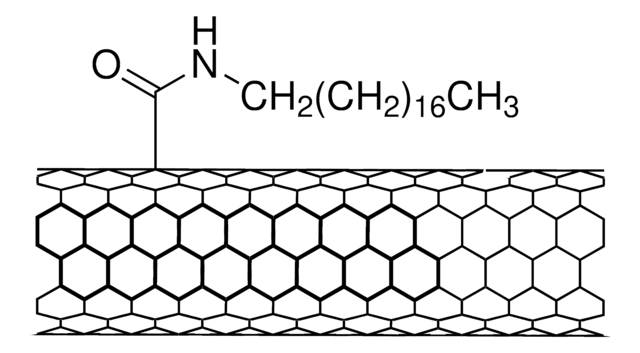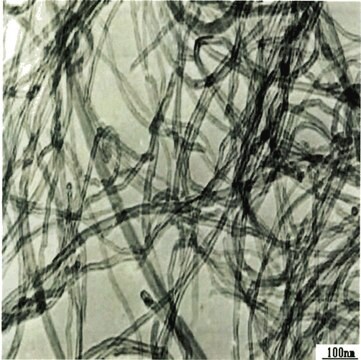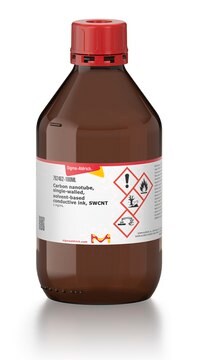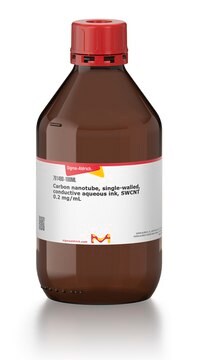652490
Carbon nanotube, single-walled
carboxylic acid functionalized, >90% carbon basis,D × L 4-5 nm × 0.5-1.5 μm , bundle dimensions
Synonym(s):
SWNT, carboxylic acid functionalized
About This Item
Recommended Products
product name
Carbon nanotube, single-walled, carboxylic acid functionalized, >90% carbon basis, D × L 4-5 nm × 0.5-1.5 μm , bundle dimensions, avg. no. of layers, 1
Assay
>90% carbon basis
form
powder
feature
avg. no. of layers 1
extent of labeling
1.0-3.0 atom% carboxylic acid
D × L
4-5 nm × 0.5-1.5 μm , bundle dimensions
impurities
5-8% metals
solubility
H2O: dispersible 0.1 mg/mL
DMF: dispersible 1.0 mg/mL
functional group
carboxylic acid
Related Categories
General description
Application
Packaging
Physical properties
Preparation Note
Analysis Note
Signal Word
Warning
Hazard Statements
Precautionary Statements
Hazard Classifications
Eye Irrit. 2 - STOT SE 3
Target Organs
Respiratory system
Storage Class Code
11 - Combustible Solids
WGK
WGK 3
Flash Point(F)
Not applicable
Flash Point(C)
Not applicable
Personal Protective Equipment
Choose from one of the most recent versions:
Already Own This Product?
Find documentation for the products that you have recently purchased in the Document Library.
Customers Also Viewed
Articles
Carbon nanotubes are materials that possess remarkable properties and offer extraordinary possibilities.
Carbon nanotubes (CNTs) have received much attention since their discovery in 1991 by Sumio lijima1 due to their excellent mechanical, electrical, and optical properties.
A nanocomposite is typically defined as a mixture between a host material (e.g., polymer matrix) and nanofillers with at least one dimension of less than 100 nm.
Single-walled carbon nanotubes (SWCNTs) are promising materials for use in the active channel of field-effect transistors (FETs), photoabsorbing layers of solar cells and photodetectors because of their ultrafast charge transport mobility.
Our team of scientists has experience in all areas of research including Life Science, Material Science, Chemical Synthesis, Chromatography, Analytical and many others.
Contact Technical Service









